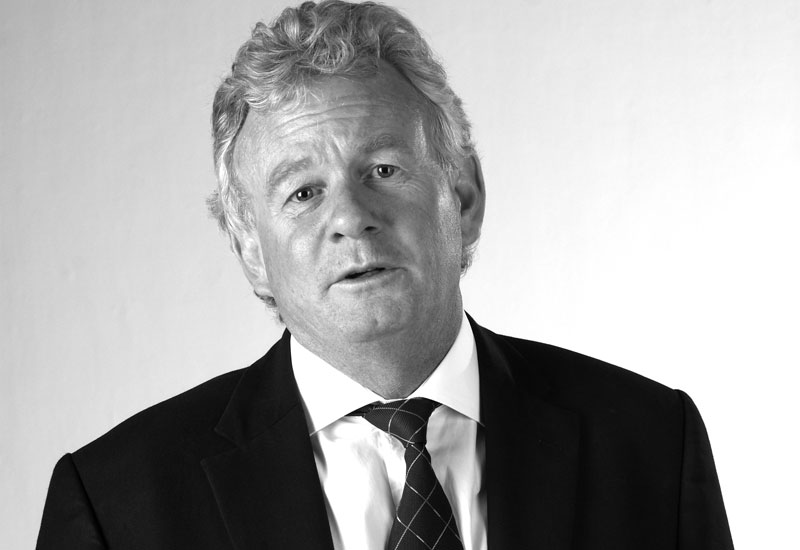Seven Tides Hospitality managing director Mike Scully predicts growth for hotel companies in developing countries — but only if they adopt a green culture and demonstrate low carbon initiatives in all markets now
With the Copenhagen Climate Change Conference out of the way without the hopeful agreements being signed, I feel that it is only right that we look at this in the context of the hospitality industry and its long-term implications. It was highlighted once again at the conference that we have a new “Cold War” and this war between North and South as opposed to East and West is concentrated on the “haves” and the “have-nots”; the “haves” being the northern, prosperous, high-consuming energy countries, who have been responsible in the most part for global warming, and the southern “have-nots”, who are trying to obtain aid from the north and will ultimately hold the north accountable for global warming.
How does this affect the hospitality industry? I believe that the largest growth potential for both hospitality developers and operators will be in the developing countries predominantly in the south.
These developing countries will hold western countries and companies to ransom on their green philosophies and practices. In essence, this is one of the few tools they have and they will use it willingly.
We, therefore, need now to ensure that we follow green low carbon philosophies on all projects, whether in developed nations or developing nations, in order to show that our organisations have developed a culture of low energy consumption.
I have mentioned the word “culture” in previous articles when talking about an owner’s responsibility towards revenue management; I do so now in light of green issues as well. We are talking about team work from concept, architectural, development and management stages. If all parties show equal determination, I believe those who participate will gain — and can demand — priority status when developing nations are looking for partners. It must be remembered that energy costs money and developing nations do not have the necessary resources to supply wasteful utilities.

Advertisement
ENERGY BREAKDOWN
We know that in the split of energy consumption in hotels, air conditioning can account for between 30-40% (closer to 60-65% in the Middle East), lighting similar, hot water 8%, with the rest taken up by stoves, laundries etc.
The International Hotels and Restaurant Association (IH&RA) and the United Nations World Tourism Organisation have set savings targets of more than 20% for the hospitality industry with the potential of up to 30%, which equates to savings of about US $40,000 per average size hotel per year.
This is mostly applicable to developed properties, however, we need to be as committed to new builds, looking at design and construction using the latest green, low carbon technology. It is clear that whatever replaces current energy technology has to be affordable, reliable and low carbon. It is generally accepted that to build LEED equivalent standards, the costs could increase by anything up to 10%. I believe that this money will be well spent and the return on investment will be relatively quick — and with the forecasted rise in price of utilities and green policy requirements, this ROI could be far quicker.
FUTURE APPROACH
It is not only technology which will reduce the carbon load of individual properties; it is the developer and owners’ requirements in conjunction with architects that need to be seriously addressed.
We need to look at the size of open areas that need air conditioning, the way our door systems work in regulating air flow in and out of buildings, the size of windows and the positioning of the hotels with regards to sun and shade in order to reduce the HVAC requirements. The use of natural materials and in many cases ground cover can substantially reduce energy requirements too.
We all know what the leading lighting and equipment suppliers such as Phillips are offering in order to reduce consumption from lights, signage, TVs, kettles and hair dryers among many others. We also know that there are PMS and RMS systems available that can assist in substantial savings and these must be purchased and effectively used by operating companies. And this is where I stress once again the need for a low carbon culture where the owner/developer purchases the right equipment and agrees to an energy efficient design, which the operator commits to using in the best interests of the owner.
There must also a move away from energy inefficient five-star products to more low carbon friendly, good service four-star hotels.
Mike Scully has worked for some of the leading hotel management companies worldwide — Sun International, Holiday Inn, Accor and Starwood — as well as developing and managing properties for the Dubai Government. He is currently managing director of Seven Tides — Hospitality, which will be opening four luxury properties in Dubai within the next 12 months and which also owns Dukes Hotel in London.









 Search our database of more than 2,700 industry companies
Search our database of more than 2,700 industry companies










Feb 13, 2010 , United Arab Emirates
Dear Sir How about advising hotels to fix water purification systems for the hotel staff drinking water, cafes , and bars,,, instead of PLASTIC bottles... Thats a lot of fuel CUT DOWN,,, Trust to see the difference !!!
Feb 11, 2010 , Hong Kong
Excellent comments. These parameters should extend to suppliers. Since the majority of supplies (furniture, toiletries, kitchenware, linens...) come from top emitting nations (China, India, Pakistan...), all partners of the supply chain must demonstrate measures taken to reduce emissions / carbon...